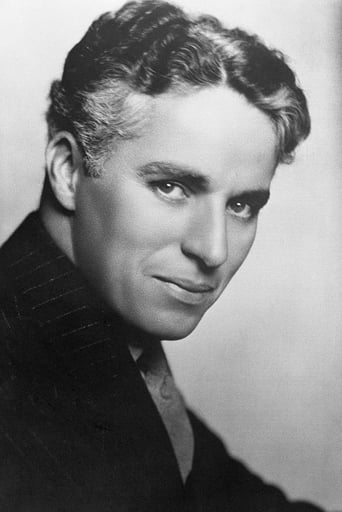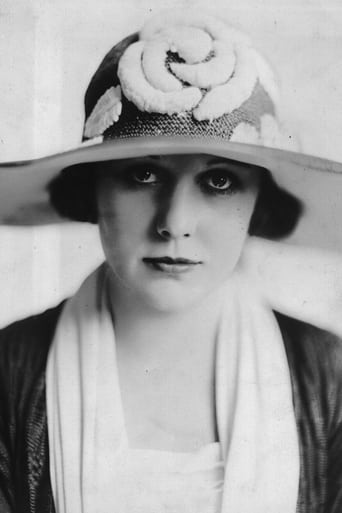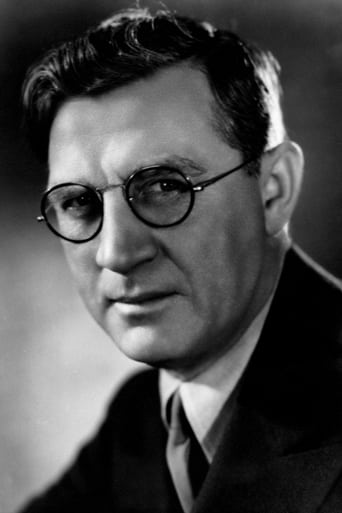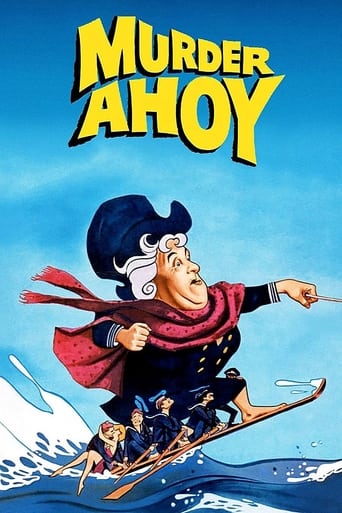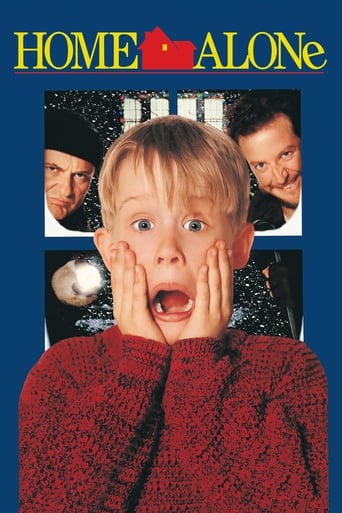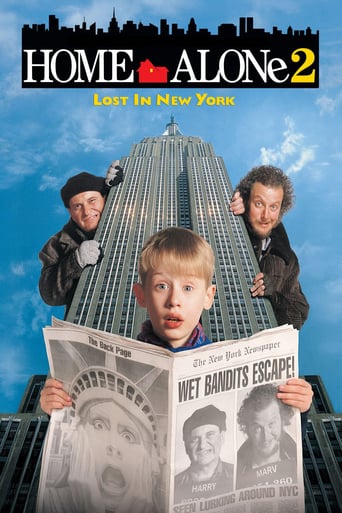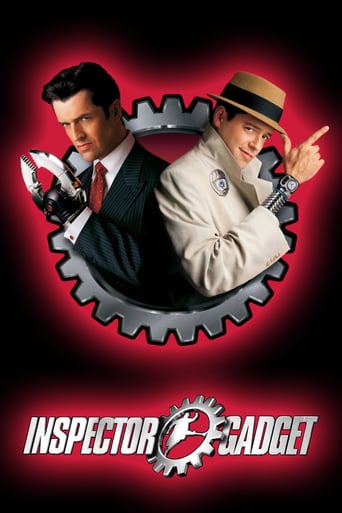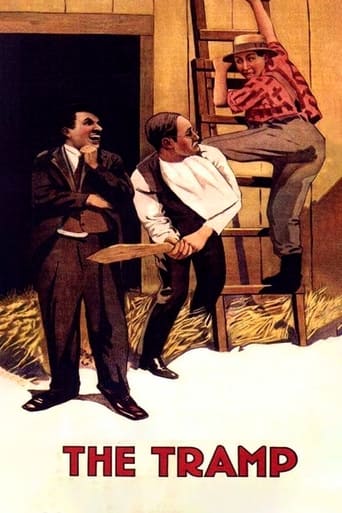
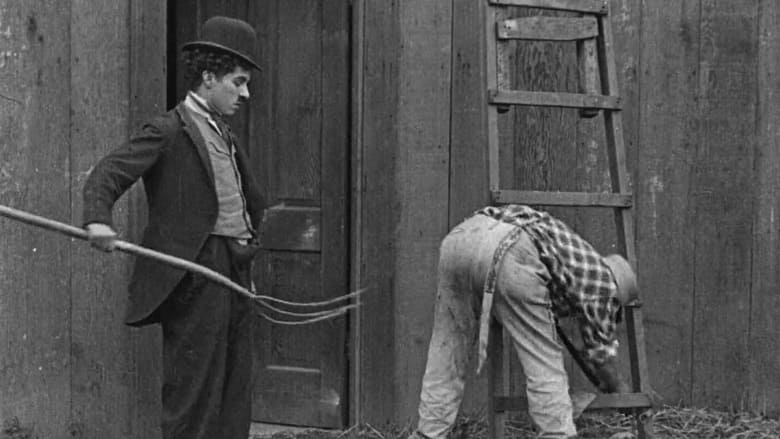
The Tramp (1915)
The Little Fellow finds the girl of his dreams and work on a family farm. He helps defend the farm against criminals, and all seems well, until he discovers the girl of his dreams already has someone in her life. Unwilling to be a problem in their lives, he takes to the road, though he is seen skipping and swinging his cane as if happy to be back on the road where he knows he belongs.
Watch Trailer
Cast
Similar titles

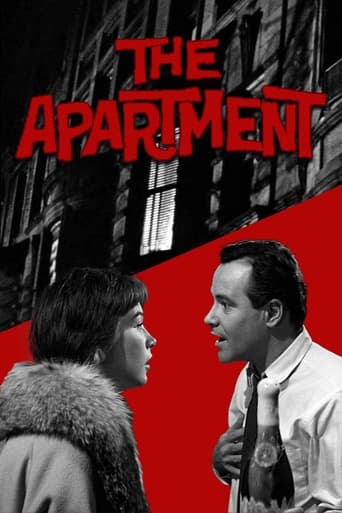
Reviews
Very very predictable, including the post credit scene !!!
If you don't like this, we can't be friends.
It's hard to see any effort in the film. There's no comedy to speak of, no real drama and, worst of all.
Let me be very fair here, this is not the best movie in my opinion. But, this movie is fun, it has purpose and is very enjoyable to watch.
In 1914 Charlie Chaplin originally introduced his famous tramp character in the short "Kid Auto Races at Venice." Later in the same year Chaplin was underscored in the first feature length comedy "Tillie's Punctured Romance." He had already acquainted theater goers with his funny mannerisms, odd walk, baggy pants, cane, and derby. In that feature though, his character was more of a scoundrel than an empathetic gentleman. In 1915's "The Tramp," Chaplin continued with his character development, this time injecting him with pathos. He is now a good guy. While walking on a narrow road the Tramp is nearly struck by two passing autos. Twice he is knocked down on his back, but quickly and hilariously dusts off himself. Right after, a nearby hobo emerges from the bushes and attempts to steal money from a farmer's daughter (Edna Purviance). The Tramp comes to the rescue and defeats the bad guy, who runs away. Two other hobos try the same dishonest deed individually, but the Tramp winds up on top. The three itinerants flee. As a reward for his kindness the Tramp is taken in at the farm and Edna's father (Ernest Van Pelt) tells him in one of the film's few title cards, "As a reward you can work." There is slapstick as the Tramp gets into trouble without being very productive. His attempt at cow milking stands out. Meanwhile the three vagrants again appear and offer our hero a split of the take if he helps them steal the money. He pretends to work a deal with them but actually thwarts their second attempt at thievery in a comical manner. The Tramp thinks he has won over the girl and enjoys his victory dinner. Then the girl's well-dressed fiancée arrives. Nothing is left for the dejected Tramp to do but walk away, although his steps at the end show optimism. This short, Chaplin's sixth film for Essanay Studios, represents the beginning of Chaplin's compassionate Tramp.
Were the films of Charlie Chaplin stagey because he employed long takes and few camera moves? No! There is something else you can have on screen that you can't on stage beside camera-work and edits, and that is the field of depth. From early on Chaplin had learnt how to use depth to give his little tramp character the kind of entrances and exits that you couldn't have in the theatre, ones that stretched off into the distance, allowing him to gradually appear on the scene and make the most of that now-familiar walk. In the Tramp, he created his most iconic image, that of the tramp sauntering up and later plodding away down a winding country lane.Such a great and memorable entrance is important for the more structured story lines that Chaplin was now starting to build. Whereas most of the Essanay shorts this far had simply taken a setting in which Charlie could run wild, the Tramp seems to have been constructed plot first, with the funny business appearing along the way. Far from diluting the comedy, this actually improves the material. For example, the middle section in which Charlie causes havoc on the farm, might a few months earlier have been the basis for an entire short – "The Farmhand", perhaps – but now Chaplin is able to condense the best gags of the situation down to one segment which can be woven into the overall story.The Tramp ends on a note of poignancy – something that was unheard of in screen comedy at the time. But all that Chaplin is doing is recognising something that has been established for centuries. Shakespeare knew it, and so did Dickens. Tragedy affects us more when it appears amongst comedy, and the moment that Chaplin creates here is touching and bittersweet. He even throws in one last gag to stop the moment from becoming too strained.This isn't quite the funniest of Chaplin's Essanay pictures, but it is the first mature and truly beautiful thing he had yet created.And finally, that all important statistic – Number of kicks up the arse: 5 (2 for, 1 against, 2 other)
Chaplin edited, wrote, directed, and starred in this film, a milestone for Chaplin and perhaps film comedy. It was not his first appearance as the tramp, but it was certainly his first appearance as the tramp that everyone still recognizes today. Gone is the aggressive Chaplin of old, always scheming and trying to put one over on people. Here he has a chance to do just that early in the film and chooses not to. It's as if Chaplin recognized his chance to branch out in another direction. He saves Edna Purviance from thieves and goes to her father's farm where he is given a job. Comical mishaps ensue with a pitchfork, and the tramp is not cut out to be a farmhand. The thieves return and are run off with the tramp's help, but the tramp is accidentally shot in the confusion. He eventually recovers thinking he'll marry the farmer's daughter, but he finds out she has a beau already(Lloyd Bacon, the Warner Brothers director). The tramp writes a goodbye letter and leaves. The film is consistent in tone and well edited. As in most of Chaplin's better films, the slapstick is reined in in favor of a plot or story. The ending with its simultaneous pathos and optimism is a Chaplin trademark. **1/2 of 4 stars.
Loosely based on Jacob and Rebekkeh from Bible. This is a comical love story where a man gets what he wants in spite of all obstacles. The Tramp delivers humor that bends the rules of his time period. This film influenced many future great comics. It has clever satire about society and pokes good fun at romance. Not his best but still a classic worth watching.Be sure to watch when your wide awake. Chaplins films obviously lack the sound and picture quality of todays pictures. If you give it a go it won't disappoint. If your looking to be impressed check out The Great Dictator and for a lot of fun watch Modern Times. Another great film by another director is Metropolis, this is a definite 10!
